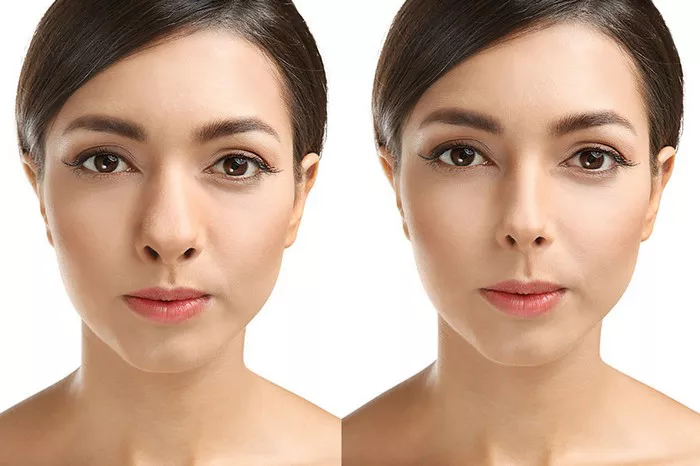Rhinoplasty, commonly known as nose surgery, is a cosmetic procedure that is performed to improve the appearance and function of the nose. After rhinoplasty, patients are often advised to follow a strict post-operative diet to promote healing and minimize the risk of complications. One common question that patients have is whether or not they can eat chocolate after rhinoplasty. In this article, we will explore this question in detail.
The Importance of a Post-Operative Diet:
Following a rhinoplasty procedure, it is important to follow a post-operative diet that is rich in nutrients and low in salt and sugar. A healthy diet can help to promote healing and minimize the risk of complications such as infection and swelling.
In the first few days after surgery, patients are typically advised to consume a liquid diet that is high in protein and low in salt and sugar. This may include protein shakes, broths, and smoothies. As the healing process progresses, patients can gradually reintroduce solid foods into their diet.
Can I Eat Chocolate After Rhinoplasty?
While there is no specific restriction on eating chocolate after rhinoplasty, it is generally recommended that patients avoid foods that are high in sugar and salt in the first few weeks after surgery. This is because foods that are high in sugar and salt can increase swelling and inflammation, which can delay the healing process.
Chocolate is a food that is high in sugar, so it is generally recommended that patients limit their consumption of chocolate in the first few weeks after rhinoplasty. However, small amounts of dark chocolate may be acceptable as it contains antioxidants that can help to reduce inflammation and promote healing.
Other Foods to Avoid:
In addition to chocolate, there are several other foods that patients should avoid in the first few weeks after rhinoplasty. These include:
Salty Foods: Foods that are high in salt can increase swelling and inflammation, which can delay the healing process. Patients should avoid foods such as chips, pretzels, and processed meats.
Spicy Foods: Spicy foods can irritate the nasal passages and increase swelling and inflammation, which can delay the healing process. Patients should avoid foods such as hot sauce, chili peppers, and curry.
Alcohol: Alcohol can increase swelling and inflammation, which can delay the healing process. Patients should avoid alcohol in the first few weeks after rhinoplasty.
Carbonated Beverages: Carbonated beverages can increase swelling and discomfort, which can delay the healing process. Patients should avoid soda, sparkling water, and other carbonated beverages.
Hard Foods: Hard foods such as nuts, popcorn, and hard candy can increase swelling and discomfort, which can delay the healing process. Patients should avoid hard foods in the first few weeks after rhinoplasty.
Foods to Eat After Rhinoplasty:
In the first few weeks after rhinoplasty, it is important to focus on consuming a healthy diet that is rich in nutrients and low in salt and sugar. This may include:
Lean Protein: Lean protein sources such as chicken, fish, and tofu can help to promote healing and minimize the risk of infection.
Fresh Fruits and Vegetables: Fresh fruits and vegetables are rich in vitamins and minerals that can help to promote healing and reduce inflammation.
Whole Grains: Whole grains such as brown rice, quinoa, and whole wheat bread can provide energy and nutrients that are essential for healing.
Low-Fat Dairy: Low-fat dairy products such as milk, yogurt, and cheese can provide calcium and other nutrients that are essential for healing.
Water: Drinking plenty of water can help to flush toxins from the body and promote healing.
Managing Swelling After Rhinoplasty:
Swelling is a common side effect of rhinoplasty, and it can be exacerbated by certain foods and beverages. In addition to avoiding foods that are high in sugar and salt, patients should also avoid foods that are known to cause bloating, such as beans, broccoli, and cabbage.
To help manage swelling after rhinoplasty, patients can also try the following:
Elevate the Head: Sleeping with the head elevated can help to reduce swelling and promote healing. Patients should try to sleep with their head elevated for the first few weeks after rhinoplasty.
Apply Cold Compresses: Applying cold compresses to the face can help to reduce swelling and discomfort. Patients can use a cold compress for 10 to 15 minutes at a time, several times a day.
Avoid Heat: Heat can increase swelling and inflammation, so patients should avoid hot showers, saunas, and steam rooms in the first few weeks after rhinoplasty.
Take Medications as Directed: Patients may be prescribed medications to help manage pain and swelling after rhinoplasty. It is important to take these medications as directed by the surgeon.
Follow the Surgeon’s Instructions: The surgeon will provide specific instructions on how to manage swelling and promote healing after rhinoplasty. Patients should follow these instructions closely to ensure the best possible outcome.
Conclusion:
Following a rhinoplasty procedure, it is important to follow a post-operative diet that is rich in nutrients and low in salt and sugar. While there is no specific restriction on eating chocolate after rhinoplasty, it is generally recommended that patients limit their consumption of chocolate in the first few weeks after surgery. Patients should also avoid other foods that are high in salt and sugar, as well as spicy foods, alcohol, carbonated beverages, and hard foods. Instead, patients should focus on consuming a healthy diet that is rich in lean protein, fresh fruits and vegetables, whole grains, low-fat dairy, and water. By following these guidelines and managing swelling, patients can promote healing and minimize the risk of complications after rhinoplasty.


